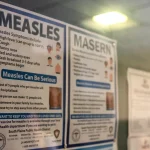India itself has received more than a third of the nearly 28 million Indian-made AstraZeneca Covid-19 vaccine doses delivered so far by the global programme for poor countries, according to data from Umicef and a source.
The revelation that the largest allocation of doses India has supplied to the Covax programme never actually left the country could add to criticism of India and Covax, after New Delhi decided to delay big exports of vaccines that poor countries around the world had been counting on.
Data on Unicef’s website shows that India had received 10 million doses of vaccine from Covax, the most of any country. Nigeria is second with about four million doses. Many poor nations entirely reliant on the programme have so far received little or no vaccine.
Hundreds of millions of AstraZeneca doses made under licence by the Serum Institute of India form the vast bulk of the initial order for Covax, the global system set up to vaccinate people mainly in poor countries. Fifty million doses were meant to be delivered next monthl, but much of that order is likely to be delayed by India’s new export restrictions.
Covax, led by the World Health Organisation and the Gavi alliance of countries, charities and companies, aims to provide two billion vaccine doses this year. Unicef distributes the shots.
But the programme has so far gotten off to a slow start, with officials complaining that rich countries have hoarded most early doses of vaccines.
The source said India had received its 10 million doses early, as Covax had to wait for the vaccine to be approved for emergency use by the World Health Organisation before it could start to distribute doses globally.








